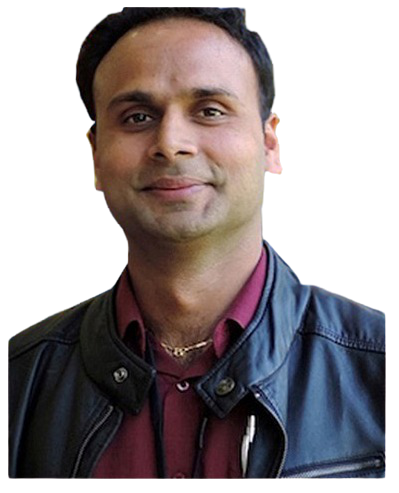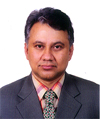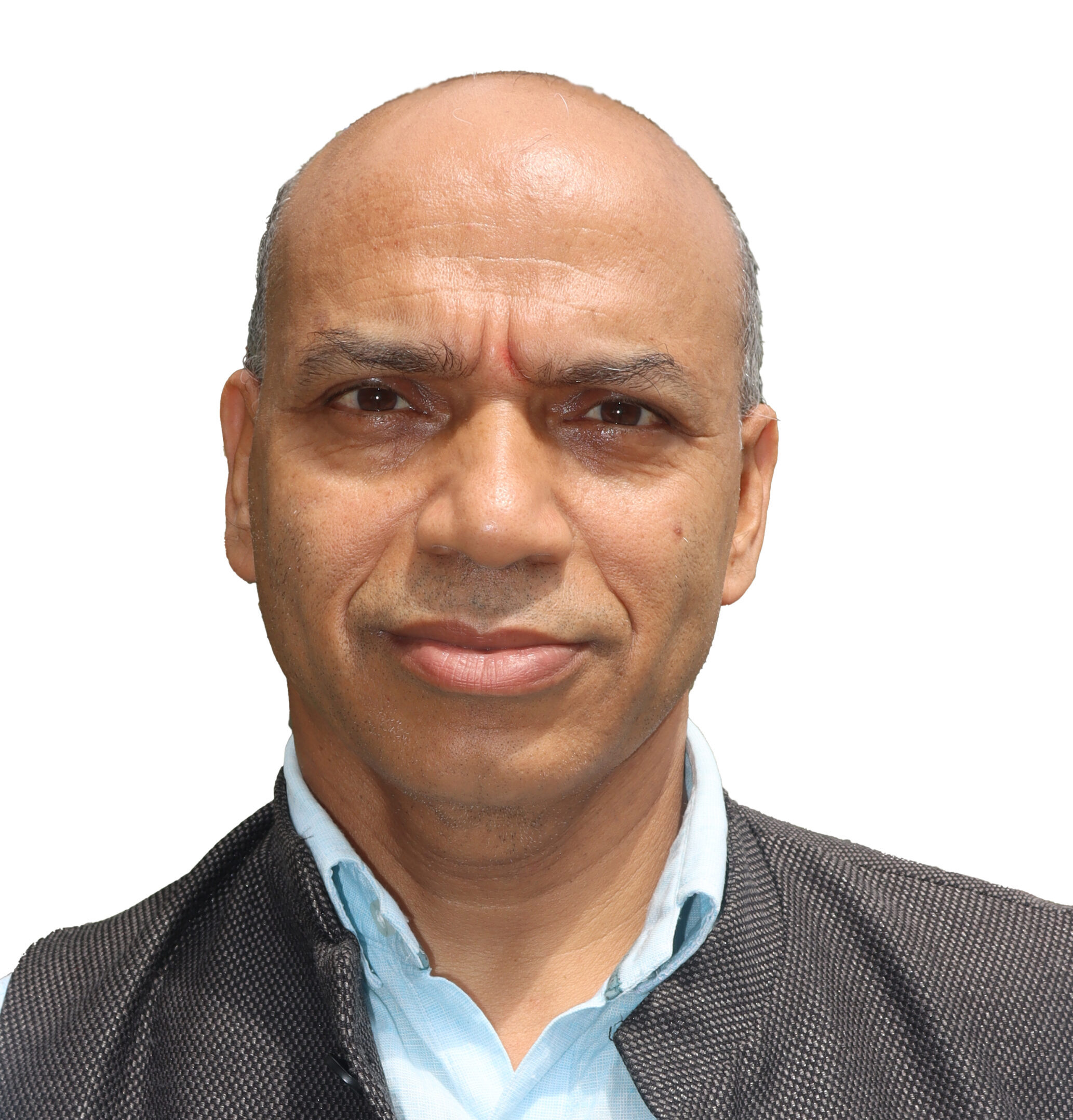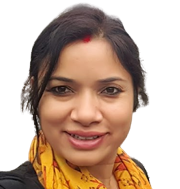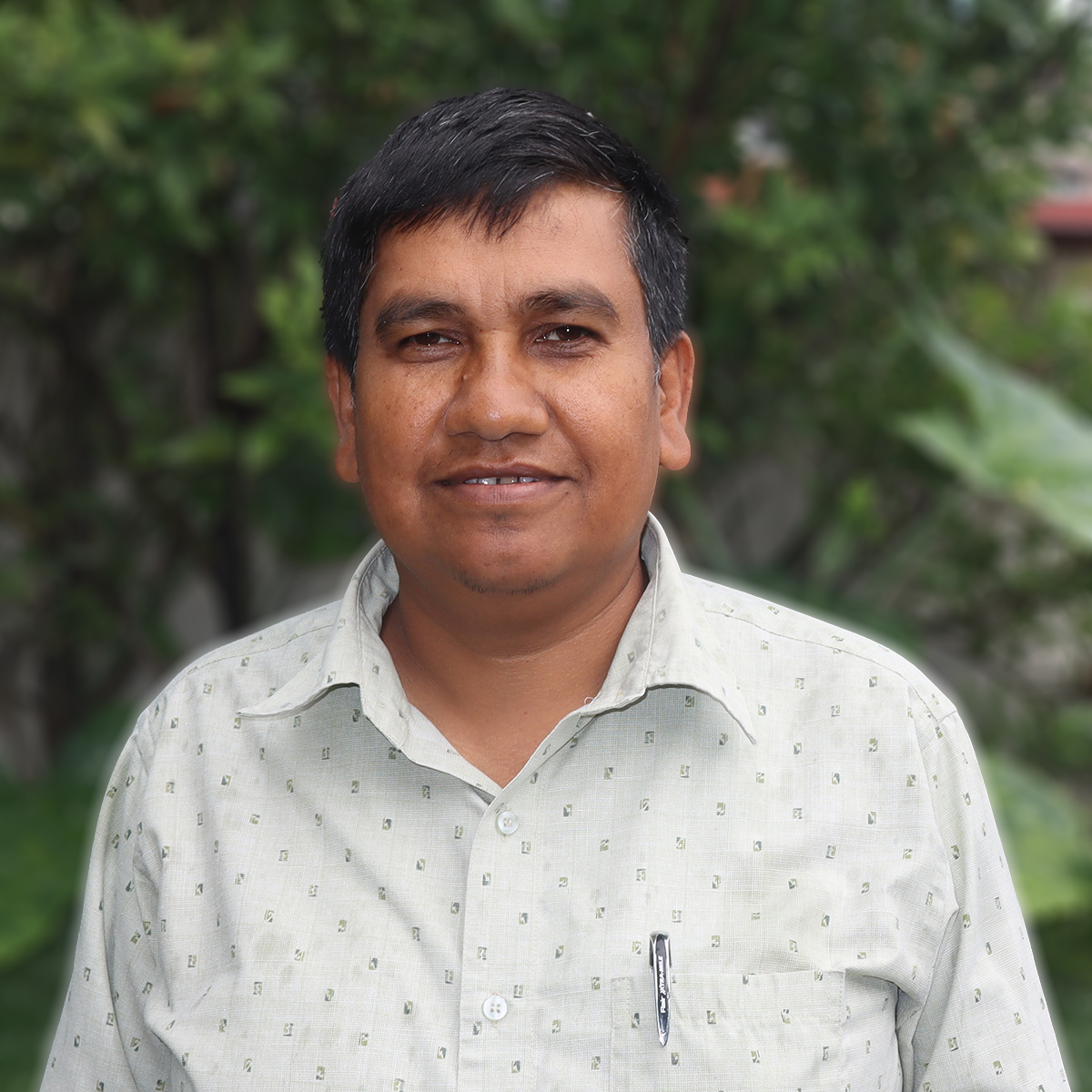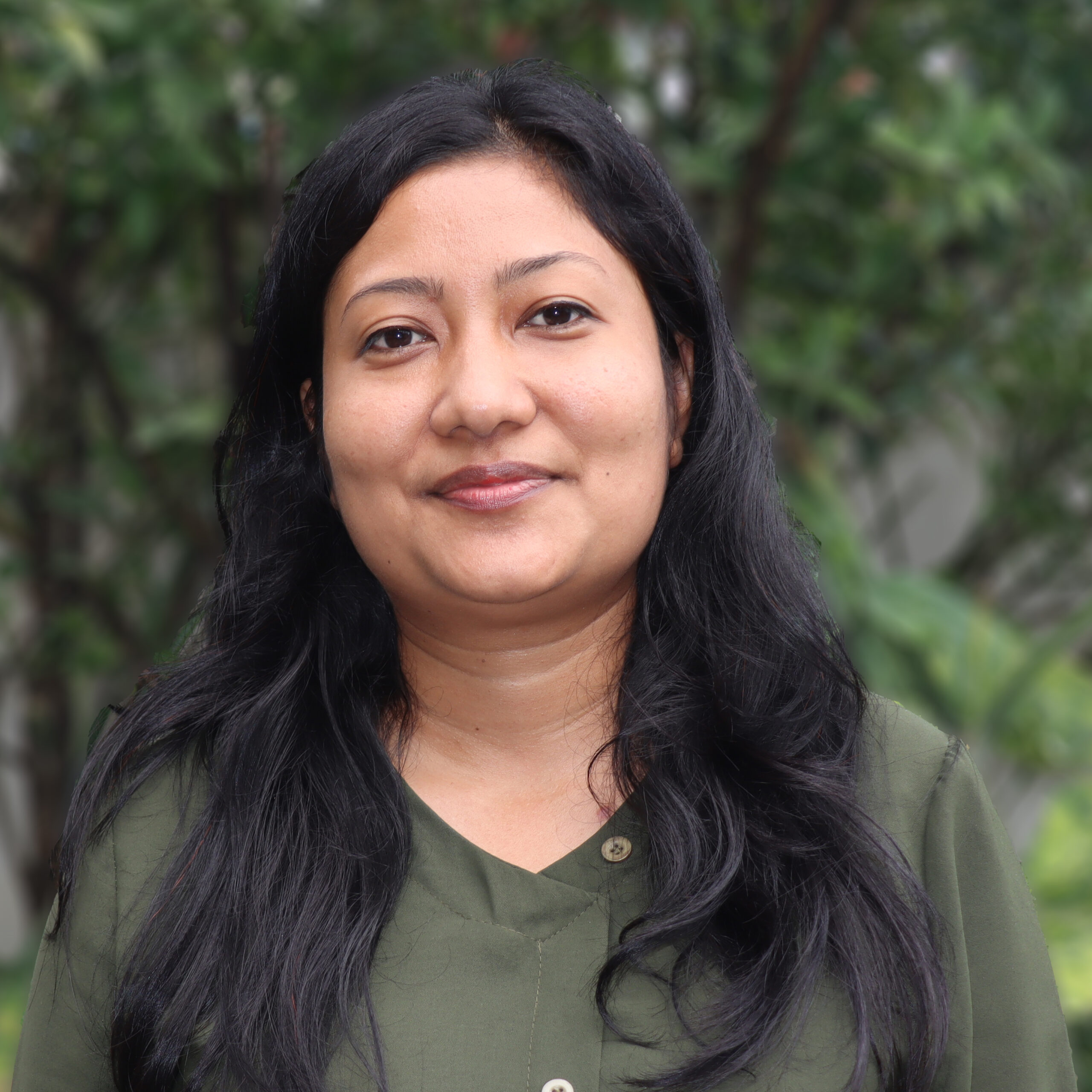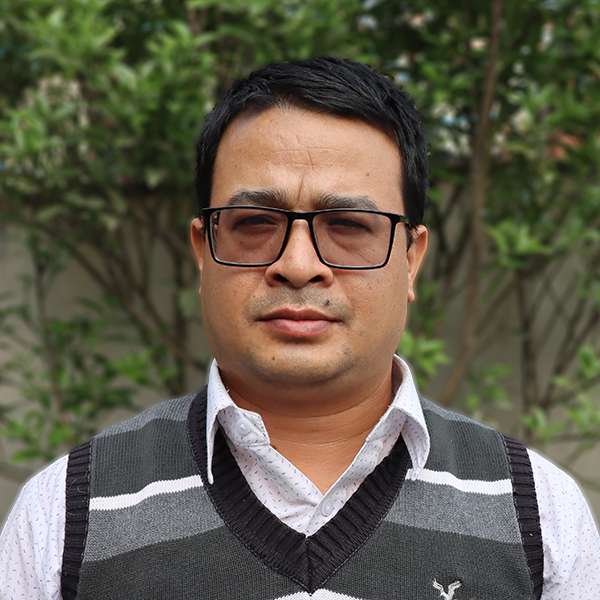Chandra Lal Pandey is a Senior Research Fellow at Southasia Institute of Advanced Studies. He is also a Visiting Professor in School of Education, Kathmandu University the Institute of Crisis Management, and International Relations and Diplomacy Programmes, Tribhuvan University. He was a Postdoctoral Fellow at the University of Waikato, New Zealand from where he had also earned a PhD in Political Science and Public Policy, concentrating in the fields of climate governance, environmental (social) justice and resource politics. Prior to his PhD studies, he was a Research Fellow at Hanshin University, South Korea, and a Lecturer at various academic institutions in Nepal. Some of the courses he has taught and currently teaching include Global Environmental Politics and Public Policy; Development Theories and Discourse; Fundamentals of Sustainable Development; Climate Change and Security; Global Change and Sustainability; and Changing Dimensions of Security. His research expertise and interests include environmental politics/security/management; climate change governance/adaptation and REDD Plus; resource governance/politics (rural & urban), sustainable development studies; crisis and disaster management; human security and all emerging issues of non-traditional security studies.
He has long been working with environmental affairs and developmental issues in South Asia. His diverse international experience of more than 15 years in research and teaching provides him with a wide knowledge base and a flexible perspective.
He has co-edited a book Environmental Security in the Asia-Pacific published in June 2015 by Palgrave Macmillan in the United States. His has just finished co-authoring a book Why REDD will Fail, which is being copyedited to be published in early 2016 by Taylor and Francis, Routledge studies in Environmental Policy. He has also published several research articles in a number of leading international journals.
Academic Qualifications:
Postdoc, Climate Change Governance, Environmental Security & Resource Politics. 2014-2015.
PhD, Political Science and Public Policy, University of Waikato, New Zealand, 2014.
Thesis: International Climate Change Governance: Issues of Democracy, Institutions and the Media.
Publications:
Books and Chapters:
Pandey, C. & Watson, I. (eds.). (17 June, 2015) Environmental Security in the Asia-Pacific. New York & London: Palgrave.
Pandey, C. (2015) “Climate Change in South Asia: Green Bridging Between Nepal and India”. In Environmental Security in the Asia-Pacific, edited by C. Pandey & I. Watson. New York & London: Palgrave.
Pandey, C. DeShazo, J. and Smith, Z. (2016, Forthcoming). Why REDD will Fail. New York: Routledge.
Pandey, C. (2016, Forthcoming). Chapter 4-“REDD Countries and Drivers of Deforestation”. In Why REDD will Fail. New York: Routledge.
Pandey, C. (2016, Forthcoming). Chapter 6- “Can REDD help developing countries achieve economic growth and mitigate climate change?” In Why REDD will Fail. New York: Routledge.
Pandey, C. (2011) Impact of Nepalese Domestic Politics on Nepal-Indo Foreign Relations, Saarbrucken: LA Publications.
Peer Reviewed Articles:
Pandey, C. 2016, Forthcoming. “Environmental Security in South Asia”, Nepali Journal of International Affairs to be launched soon by Department of International Relations and Diplomacy, Tribhuvan University.
Pandey, C. 2015. “Managing Climate Change: Shifting Roles for NGOs in Climate Negotiations. Environmental Values Vol. 24 No. 6, 799-
Pandey, C. (2014) “The Limits of Climate Change Agreements: From Past to Present” Climate Change Strategies and Management Vol. 6, No. 4, 376-390.
Pandey, C. (2014) “Resources and the International Climate Change Policy Gridlock”, Chinese Journal of Population, Resources and Environment Vol. 12, No. 3, 199-209.
Pandey, C. & Watson, I. (2014) “Environmental Security and New Middle Powers: A Case of South Korea,” Asian Security, Vol. 10, No. 1, 70-95.
Pandey, C & Watson, I (2014). “Public Diplomacy and Bridging in the Climate Change Debate: Assessing South Korea’s Leadership Role in Middle Power Forums”. Australian Political Studies Association Proceedings Publication, 1-21, Sydney.
Pandey, C. (2012) “International Climate Change Negotiations and the Australian Political Studies Association Proceedings Publication, 273-300,
Pandey, C. (2012) “Impacts of Climate Change on Agriculture and Adaptation in Nepal”, Agribusiness and Information Management, Vol. 4, No. 1, 13-23.
Research Projects in review and progress:
Pandey, C. Kurian, P. and Simpson, A. (In-Review)“International Climate Change Policy: The Major Emitters and the Media”. Global Environmental Politics.
Pandey, C. et al., (2012-2015) Local Politics of State and Adapting to Climate Risks: Assessing the Politico-Administrative Capacity in the Post Conflict Nepal. Climate Change and Rural Institutions, Southasia Institute of Advanced Studies and Forest Action Nepal.
Pandey, C. et al., Local Politics and Adaptive Capacity. A journal article expected to be published from top ranked international journal.
Pandey, C. “Post Earthquake Nepal: Progress, Issues and Challenges in Disaster Management”, A book length project in initial phase with other potential contributors.
Conference and Presentations (2010 onwards):
Pandey, C. Kurian, P. & Simpson, A. (2015). “Media Coverage of International Climate Change Policy: A Cross-national Analysis” paper presented at International Conference of Environment, Health and Media, Hong Kong Baptist University, Hong Kong, 5-7 January.
Pandey, C. (2014). “Global Change, Food Security and Migration: The Case of Nepal.” Paper presented at the New Zealand Political Studies Association Conference (NZPSA), Auckland, 1-3 December.
Pandey, C. Kurian, P. & Simpson, A. (2014). “International Climate Change Policy: The Media and the Major Emitters” paper presented at the Special Panel at Faculty of Arts and Social Sciences, Waikato University, Hamilton, 30 October.
Pandey, C & Watson, I. (2014) “Public Diplomacy and Bridging in the Climate Change Debate: Assessing South Korea’s Leadership Role in Middle Power Forums”, paper presented at the Australian Political Studies Conference (ASPA), Sydney, 28 September-1 October.
Pandey, C. (2013) “Managing Climate Change: Shifting Roles for NGOs”, New Zealand Political Studies Association (NZPSA), Christchurch, 2-3 December.
Pandey, C. (2013) “The Tripartite Challenges of Food Security: Climate, Migration and Low Investment in Nepal”, The Australia New Zealand Society for Ecological Economics (ANZEE), Canberra, 11-14 November.
Pandey, C. (2012) “Managing Climate Change: The Limits of Copenhagen Accord” New Zealand Political Studies Association (NZPSA), Wellington, 26-28 November.
Pandey, C. (2012) “International Climate Change Negotiations and the Media” Australian Political Studies Association (ASPA), Hobart, Tasmania, 24-26 September, 2012.
Pandey, C. (2011) “Exploring the Democratic Deficit-the Kyoto Protocol”, New Zealand Political Studies Association (NZPSA), Dunedin, 1-2 December.
Pandey, C. (2011) “Exploring the Democratic Deficit-the Kyoto Protocol”, FASS Postgraduate Yearly Seminar, Waikato University, Hamilton, October.
Pandey, C. (2010) “A Survey Research on Logo Rebranding and Public Perception of YWRC”, Young Workers’ Resource Centre, Hamilton, December.
Pandey, C. (2010) “Revisiting the Legitimacy and the Democratic Status of Intergovernmental Response to Climate Change”, Political Science and Public Policy Post Graduate Seminar Series, Waikato University, Hamilton, September.
Relevant Academic Indicators:
Peer Reviewer for the Journals: Environmental Values; Climate Change Impacts and Responses; International Relations and Diplomacy, Journal of Education and Research.
Guest Lectures on Environmental Management Paper, Master of Sustainable Development Programme, Kathmandu University, July-August 2015.
Guest Lecture on Global Environmental Politics and Policy, Department of International Relations and Diplomacy, Tribhuvan University.
Guest Lecture series on the topic of Social/Climate Justice and Climate Disaster Management run by the think tank organization Global Partnership and Development, Hamilton, 2014.
Guest Lecture on the topic of Nepal at Political Crossroads: A Historical Analysis of Nepalese Politics for New Zealand Institute for International Affairs, Waikato University 18 July, 2012.
Membership: New Zealand Political Studies Association, Australian Political Studies Association, Korean International Studies Association, International Political Studies Association.
Languages:
English, Nepali, Hindi native like, conversational Korean.

